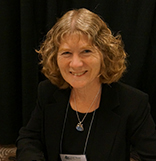Bio
Lois Wright Morton received her Ph.D. in Development Sociology at Cornell University, Ithaca, New York. She is currently a Professor Emeritus of Sociology in the College of Agriculture and Life Sciences at Iowa State University. Dr. Morton directed (2011-2017) the USDA-NIFA Climate & Corn-based Cropping System Coordinated Agricultural Project (CAP), a transdisciplinary partnership among 11 institutions across the upper Midwest https://store.extension.iastate.edu/Topic/Crops/Climate-and-Agriculture. She has co-authored the primer, Leading Large Transdisciplinary Projects Addressing Social Ecological Systems for future and new directors of very large coordinated Projects. This primer provides guidance on integrating biophysical and social sciences to better understand the complexity and diversity of human-natural systems and the intended and unintended consequences of human actions. Dr. Morton’s areas of research include civic structure, social connections and human dimensions of natural resource management, performance-based agricultural environmental management in local watersheds, impacts of long-term weather change on agricultural land use management, rural communities, and rural quality of life. Her book, Pathways to Better Water Quality: The Citizen Effect (2011) focuses on farmer-led watershed management and citizen solutions to agricultural nonpoint source pollution and represents a summary of her water quality research and extension work. She has also co-authored the book, Managing Mississippi and Ohio River Landscapes (2016) published by the Soil and Water Conservation Society. Other publications include a co-authored series on levees and flooding of agricultural lands; perceptions of landowners concerning conservation, grazing, fire and eastern red cedar management in tallgrass prairie (Rangeland Ecology & Mtg 63:6:645-654,2010); getting to better water quality outcomes: the promise & challenge of the citizen effect (Ag & Human Values 26:1:83-94, 2009, small town services and facilities and the effects of social networks and civic structure on quality of life (City & Community 2:2:101-120, 2003), definitions and theories of civic structure (Encyclopedia of Community, 1:179-182,2003), and selecting socio-economic metrics for watershed management (Environmental Monitoring & Assessment. 103:83-98). As professor emeritus, Dr. Morton continues to conduct research and publish on working agricultural lands, specialty crops and climate change, managing river landscapes, and reimaging rural places and people.

